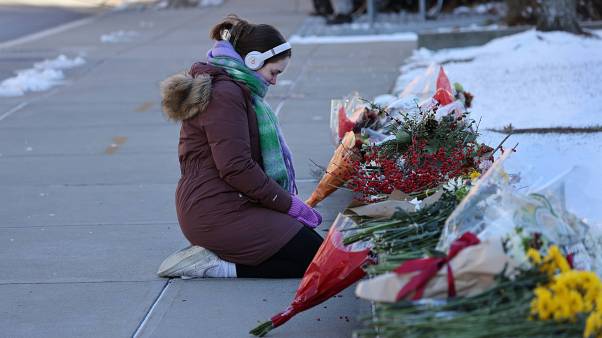This study stands apart from most faith-health research in the past several years, which has suggested that religion affects health positively. Speculation on why this happens (better lifestyle choices? stronger support communities? prayer?) continues to spawn studies, but the concept is hardly earth-shattering. The physical benefits of Christianity have been attracting attention—and converts—since the days of the early church.
Rodney Stark, professor of sociology and comparative religion at the University of Washington, explored this phenomenon in CH issue 57: Converting the Empire. The following excerpts from his article, “Live Longer, Healthier, & Better,” illustrate his conclusions:
* * *
Christians in the ancient world had longer life expectancies than did their pagan neighbors. Modern demographers regard life expectancy as the best indicator of quality of life, so in all likelihood, Christians simply lived better lives than just about everyone else.
In fact, many pagans were attracted to the Christian faith because the church produced tangible (not only “spiritual”) blessings for its adherents.
Social security
Chief among these tangibles was that, in a world entirely lacking social services, Christians were their brothers’ keepers. At the end of the second century, Tertullian wrote that while pagan temples spent their donations “on feasts and drinking bouts,” Christians spent theirs “to support and bury poor people, to supply the wants of boys and girls destitute of means and parents, and of old persons confined to the house.”Similarly, in a letter to the bishop of Antioch in 251, the bishop of Rome mentioned that “more than 1,500 widows and distressed persons” were in the care of his congregation. These claims concerning Christian charity were confirmed by pagan observers.
“The impious Galileans support not only their poor,” complained pagan emperor Julian, “but ours as well.”
Girl power
Women greatly outnumbered men among early converts. However, in the empire as a whole, men vastly outnumbered women. There were an estimated 131 men for every 100 women in Rome. The disparity was even greater elsewhere and greater still among the elite.Widespread female infanticide had reduced the number of women in society. “If you are delivered of a child,” wrote a man named Hilarion to his pregnant wife, “if it is a boy, keep it, if it is a girl discard it.” Frequent abortions “entailing great risk” (in the words of Celsus) killed many women and left even more barren.
The Christian community, however, practiced neither abortion nor infanticide and thus drew to itself women.
More importantly, within the Christian community women enjoyed higher status and security than they did among their pagan neighbors. Pagan women typically were married at a young age (often before puberty) to much older men. But Christian women were older when they married and had more choice in whom, and even if, they would marry.
Urban sanctuary
Christianity also offered a strong community in a disorganized, chaotic world.Greco-Roman cities were terribly overpopulated. Antioch, for example, had a population density of about 117 inhabitants per acre—more than three times that of New York City today.
Tenement cubicles were smoky, dark, often damp, and always dirty. The smell of sweat, urine, feces, and decay permeated everything. Outside on the street, mud, open sewers, and manure lay everywhere, and even human corpses were found in the gutters. Newcomers and strangers, divided into many ethnic groups, harbored bitter antagonism that often erupted into violent riots.
For these ills, Christianity offered a unifying subculture, bridging these divisions and providing a strong sense of common identity.
To cities filled with the homeless and impoverished, Christianity offered charity and hope. To cities filled with newcomers and strangers, Christianity offered an immediate fellowship. To cities filled with orphans and widows, Christianity provided a new and expanded sense of family.
In short, Christianity offered a longer, more secure, and happier life.
Elesha Coffman is managing editor of Christian History magazine.
Copyright © 2001 Christianity Today. Click for reprint information.
Related Elsewhere
Rodney Stark’s article, “Live Longer, Healthier, & Better,” is online at Christianity Today’s sister publication, Christian History.A BBC report examined the study that claimed ‘religious struggle’ could prove fatal
More Christian history, including a list of events that occurred this week in the church’s past, is available at ChristianHistory.net. Subscriptions to the quarterly print magazine are also available.
Christian History Corner appears every Friday at ChristianityToday.com. Previous editions include:
Thrills, Chills, Architecture? | The most exciting adventure at St. Paul’s Cathedral would be a time-traveling jaunt through its history. (August 3, 2001)
Deep and Wide| A dive into Reformation imagery yields striking new insights, while a drive-by church history overview largely disappoints. (July 27, 2001)
Shelling the Salvation Army | If William Booth’s church could handle sticks and stones in the 1880s, it should withstand the recent barrage of hateful words. (July 20, 2001)
Historical Hogwash | Two books—one new, one newly reissued—debunk false claims about the “real” Jesus. (July 13, 2001)
Ghosts of the Temple | Soon after Jerusalem fell, the Roman Colosseum went up. Coincidence? (July 6, 2001)
Endangered History | The National Trust’s list of imperiled places gives unnoticed gems a chance to shine. (June 29, 2001)
The Communion Test | How a “Humble Inquiry” into the nature of the church cost Jonathan Edwards his job. (June 22, 2001)
Visiting the Other Side | The Israelites spent time on both sides of the Jordan. Now tourists can, too. (June 8, 2001)
Beyond Pearl Harbor | How God caught up with the man who led Japan’s surprise attack. (June 1, 2001)








